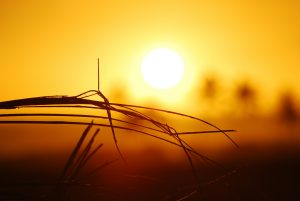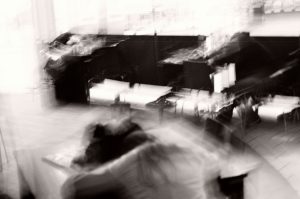Acupuncture
Acupuncture: A Gentle Touch in the Fight Against Cancer

Hearing you’ve been diagnosed with cancer can feel like getting run over by a freight train. It can be overwhelming to learn about the prognosis, treatment options, and what to expect as you begin the journey that will hopefully lead to a full recovery.
The aggressive treatments, often including chemotherapy and radiation, can leave patients feeling drained and in constant pain. What many people don’t realize is that acupuncture can be a great source of hope as it helps bring physical relief to many of the symptoms caused by traditional cancer treatments. continue reading
Tom Brady & Nightshade Vegetables

If he isn’t universally considered the greatest football player of all time, he’s at least objectively the most successful. Supposedly, one of Tom Brady’s secrets to success was an extremely strict diet, which was about 80% plant-based, organic, paleolithic, with abstinence from sugar, alcohol, soy, condiments, frozen foods, gluten, and nightshade vegetables.
Nightshade vegetables include white potatoes, tomatoes, eggplants, and bell peppers, and although all of these contain nutrients, they also contain a compound called solanine, a natural pesticide that can be toxic in high concentrations. People with irritable bowel, autoimmune, and/or arthritic conditions can be more vulnerable to solanine’s adverse effects—in Chinese medical terms, it creates dampness, or inflammation in the gut, which gets sent “outwards” to our joints. As someone who has battled gout disease off and on for twenty years, I’ve recently decided to experiment with nightshade abstinence. When it comes to self-experimentation, I generally recommend and adhere to the rule of the life cycle of a red blood cell, which is 120 days, or about four months, so I’ll let you know how things are when I reach the finish line.
Potatoes are an easy workaround, since sweet potatoes are safe, not to mention healthier overall, and delicious. I’ll miss French fries, but I’m an adult, and let’s be honest, they’re probably one of the worst things we can possibly eat. Eggplant and peppers are generally easy to avoid, but tomatoes will be tough. I love sauce and meatballs, not to mention a good caprese salad as we approach the season, however I do not love any of these things as much as I do my internal organs. Potential workarounds in said Italian realm are sauceless meatballs (+olive oil), pesto sauces, or garlic and oil primaveras, the latter of which sans peppers of course.
In playing with diet, I’ve found the same benefit I once did when imposing creative restrictions on myself as a comedian many years ago. For example, at one point I chose to not do or write any jokes about race anymore, simply because they’d become so ubiquitous and hacky on the circuit. I got so bored of hearing them that I couldn’t bring myself to perpetuate the problem, no matter how unique I thought a particular idea of mine was. By “censoring” myself in this way I think I became a superior writer, forced to think harder and write more imaginatively. Similarly, when we omit certain foods from our diet, we might be forced to broaden our horizons (just use Google!), expand our minds and at-home menus, and probably discover new foods that we love, and more importantly love us in return.
If you suffer from any chronic joint pain, autoimmune, or intestinal condition I would invite you to join in my self-experiment and see how your body feels. You/we don’t have to commit to forever. Just four months to intelligently reassess. If you prefer to wait until after tomato season you can enjoy throughout the summer, begin after Labor Day, and resume nightshade indulgences again for the winter holidays. As humans go, it seems the second most common time of year to clean up our acts after New Year’s is the end of summer, in the wake of vacations, ballgames, beers, and barbeques.
None of us can become Tom Brady on the football field, but it would be nice if our internal organs and systems could be as close as possible to the Tom Brady’s of our bodies. As we weaken with age, I believe the most logical antidote is strength in discipline, in hopes of maximizing physical freedom through restrictions or subtraction. Less is more, as they say, a fine maxim to default to under the spell of American food.
These Longest Days of the Year

Welcome to the Tai Yang time of year. Say that three times fast, and maybe add “Thank You,” to complete the trifecta, TYTYTY! “Tai Yang” means the most yang, as we enter the longest days of the year, leading up to the summer solstice next week, at which time days will begin to very gradually, grow shorter.
Until that time we might be more vulnerable to “yang pathogens,” exemplified by inflammatory heat and/or “external invasions,” which is probably why we see a minor uptick in Covid cases around this time each year, despite the warm weather which should mitigate such spread. More common are the former, symptoms of “heat rising,” a la insomnia, anxiety, palpitations, acid reflux, constipation, headaches, and ANGER!!! If you’ve noticed an exacerbation in any such signs within yourself, rest assured, it is normal for the time of year and relatively wane after June 21st. If it doesn’t, see a doctor, and/or myself.
Some of the things we can do to cool excessive yang rising include green tea in the mornings (after breakfast), then peppermint or chrysanthemum teas at night, snacking on watermelon, cucumbers, and celery, and minimizing spicy foods and alcohol. Most importantly, sweat!
In Chinese medicine we treat most “Tai Yang disease,” or viral pathogens through moderate sweating—underscore moderate for you high intensity athletes—and as the weather now is increasingly humid to begin with, it is important to sweat, just a bit every day.
The Tai Yang time of day is mid-day, around noon, which makes that window optimum for exercise—although as I often advise my busy patients, the truly best time to exercise is whenever you have time. ‘Tis better to do imperfectly than not do at all.
Although I am admittedly a slave to air conditioning for sleep, it is obviously manmade, unnatural, and ultimately not physiologically (or environmentally) beneficial. In the humid climate of summer, the contrived cold air traps pathogenic fluids at the exterior, or “Tai Yang layer” of the body, thereby exacerbating local inflammation, often inducing skin/joint conditions, and compromising immune function. I recommend using it as minimally as possible and/or wearing a scarf or long-sleeves while in offices or public transportation that insist on killing us slowly. And spend as much time outdoors as possible. We are all too deprived of it these days.
Happy Father’s Day!
Benefits of Working with Allied Practitioners

How your acupuncturist can build bridges among your health care team.
Let’s see if we can set the scene of something remarkable, something that could become the future of healthcare. Picture yourself walking into a doctor’s office or health clinic looking for relief from your debilitating chronic pain. The nurse calls your name and leads you into a serene treatment room. As you settle onto the examination table, the door opens and you are greeted by not just the familiar face of your acupuncturist, but also by a team of allied practitioners working in harmony to address your health concerns. continue reading
Chinese Medicine on Fainting, Dizziness

A friend of mine recently expressed having experienced great bouts of dizziness and fainting during the third trimester of her last pregnancy, which was in the dead of summer and was thus not surprising. I felt bad to hear of her struggles, but grateful that it inspired an idea for a new entry, on how Chinese medicine views fainting and dizziness, whether in pregnancy or not, and how we can treat or prevent it.
As with any Chinese medical diagnosis, the specifics get complicated, but we can still relatively easy to simplify into a couple of broad strokes. With any manifestation of dizziness, whether orthostatic, vertigo, passing out, or anything else, we are considering patterns of either blood deficiency, dampness, or a combination of the two, the latter of which obviously being the most difficult to treat. The final one is where your toddler at home forces you to “dance” with her around the house by spinning endlessly, for which there is no cure.
Blood Deficiency: More common in vegans, vegetarians, and pescatarians (most likely descending order), more common in women (especially while pregnant), the elderly, or anyone on long-term medications, which compromise the body’s absorption and capacity to produce blood. There is either a lack of cerebrovascular fluid or its flow and the head becomes faint.
Recommended treatment is herbs and moxibustion (acupuncture not as effective here), red meat or eggs, and earlier bedtimes.
Dampness: More common with obesity, more common in men, and/or people who consume a lot of alcohol, sugar, dairy, or raw foods. The microbiome grows congested with fluid retention, so the pathway by which our cellular energy carries healthy fluids to the brain is obstructed. “The clear yang qi cannot rise,” as we say, and our clarity or stability suffer.
Recommended treatment is minimizing all of the aforementioned foods, herbal medicine for 1-3 weeks to purge fluid retention, and acupuncture, especially along the vertigo line along the scalp located directly above the top of the ears. Note, this point will not be as effective on blood deficiency patterns, who are suffering a pattern of “deficiency,” not “excessive damp,” which responds better to aggressive manual treatment. As for self-care, drink hot ginger tea and black teas until symptoms subside.
Combination Blood Deficiency/Dampness: This is most common in pregnant women and very difficult to treat, because to nourish blood we must generate fluids, but to resolve dampness we must purge it. Not to mention the fact that we must be careful with purging fluid retention in pregnant women, since the fetus is ultimately a form of fluid retention—albeit an adorably magical one.
Dizziness and vertigo are serious conditions, not generally life threatening, although potentially dangerous when leading to the physical risks that accompany fainting. As always, Chinese Medicine can have much to offer in the way of hands-on treatment, internal medicine, and recommended self-care.
When in doubt: red meat, eggs, ginger tea, good rest, and steamed vegetables for the dampness.

